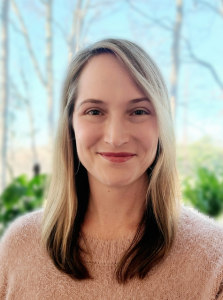There are many ways a therapist can be a resource regarding the topic of separation or divorce. One option is Discernment Counseling. In this blog post, two Triangle-area therapists answer common questions to provide a better understanding of what Discernment Counseling is and is not. Thanks to contributors Erica Blystone, LCSW, and James McCracken, LCSW. You can learn more about their practices at the bottom of this post.
Can you describe Discernment Counseling in a few sentences?
Erica - Discernment Counseling is for divorce ambivalence - couples with one partner "leaning in" and the other partner "leaning out" of the marriage. The goal is for each partner to get clarity and confidence about which of three paths to take: stay in the marriage as it is, pursue divorce, or wholeheartedly agree to six months of couples counseling. Discernment Counseling includes both partners, but in brief individual sessions where the therapist helps the partner in the room better understand their contribution to the problems and which path they want to take. Insights are shared with the other partner between sessions. Unlike couples counseling, there are no insight-oriented discussions with both partners in the room, and there are no couples interventions, skills, or homework. The emphasis is on insight rather than change.
James - Discernment Counseling is a time-limited, structured, research-based approach to helping couples on the brink of separation or divorce choose one of three paths away from ambivalence:
- Whole-hearted work in couple therapy with divorce off the table for 6 months.
- Move towards terminating the relationship in a collaborative and civil manner.
- Choose status quo without divorce or couple therapy with hopes that passage of time or another mediating event resolves the distress.
Discernment Counseling is not couple therapy nor divorce mediation, but rather is a supportive service to help couples make better use of couple therapy or the collaborative divorce process, saving couples time, money and emotional energy.
Are there any misconceptions about Discernment Counseling you commonly encounter?
James - Many couples come to Discernment Counseling expecting some sort of arbitration or mediation process, and others come expecting the Discernment Counselor to act as a judge of which partner "did wrong." Discernment Counseling is instead about helping the partner (or partners) who are leaning out and towards divorce, take a look at their concerns as well as their own part in the dynamics in the relationship, and helping the partner leaning in towards reconciliation, work on establishing and maintaining their personal balance while giving the leaning out partner space to assess the relationship. This gives couples the best chance to recognize problematic dynamics, and their individual contributions to problems in the relationship. If they ultimately choose couple therapy, both partners usually are more aware of their parts to work on and less blaming of the other partner, and if they ultimately choose divorce, both partners usually are more at peace with the decision and able to put their children's interest ahead of engaging in adversarial divorce processes.
Erica - One misconception "leaning out" partners sometimes have is that Discernment Counseling will help their "leaning in" partner understand the marriage is no longer viable so there will be consensus about ending it. The Discernment Counselor has no such agenda; their role is to help each person better understand what they want. Another misconception is that there is a "right" decision to be made when really there are significantly different paths to take that will lead to different futures.
When is Discernment Counseling not recommended?
Erica - Discernment Counseling is not for couples who have a significant past history or current fear of domestic violence, for couples in a short-term or non-committal relationship, or where the partners are of like mind (about working on the relationship or divorcing).
James - When there is domestic violence in the relationship that exceeds what we call "situational violence" (where partners can become violent during escalated arguments), and instead has a partner who is what we call an "intimate terrorist" (where one partner is controlling, dominating, demeaning, menacing, and potentially life threatening). Those circumstances require specific interventions to support abused partners, and address the problems of the "intimate terrorist". Couple therapy is not appropriate for couples where a partner is actively involved in an affair or has an unaddressed addiction, but Discernment Counseling often can help partners engaged in affairs and/or addictions determine if they are willing to end those behaviors for the sake of their marriage.
What is one way you have seen the pandemic impact relationships?
James - The stress of many aspects of the pandemic (i.e. the lock-ins, restricted social activities, job losses, loss of childcare, inflation and economic insecurity, social and political unrest, increased violent crime, divergent political views dominating our personal and public health discussions) has acted like a pressure cooker for relationships. For relationships that have solid, secure emotional connections, where partners are emotionally accessible, responsive and engaged, the pandemic has been a time to flourish. For relationships that are less secure, where partners are more critical or avoidant, the pandemic has been a time many couples have felt increasingly alone despite having someone else at home. The good news is that more couples now are seeking professional help than ever before, and professional help is better than ever with clinically-proven approaches like Emotionally Focused Therapy, Discernment Counseling, and other approaches to working with couples.
Erica - Differences between partners have been highlighted, exacerbated, and harder to avoid during the pandemic and years of increased political dichotomy. The family is living, working, and doing school on top of each other, with fewer social outlets and often with greater stressors (e.g. financial, health). It's been harder for couples - especially those in already fractured relationships - to hang together during such prolonged stress. Differences are brought to the forefront with the need to make immediate, important decisions (e.g. whether to travel, or vaccinate the kids). Over the past couple of years there has been a greater need for couples therapists and divorce specialists because more people find themselves desperately unhappy in their relationship. Many of the people requesting couples counseling or divorce therapists actually need a Discernment Counselor, but because this speciality is relatively new, they don't know to seek it out.
Erica Blystone, Licensed Clinical Social Worker, is owner of Wake Adult Counseling in Raleigh, NC. She has been providing psychotherapy for adults for over 20 years. She specializes in couples counseling, Discernment Counseling, and various divorce services. www.wakeadultcounseling.com/
 James McCracken is a Licensed Clinical Social Worker who focuses mostly on serving couples in distress in his solo practice in Durham, NC. James is a graduate of New York University's Silver School of Social Work and holds post graduate certifications in Emotionally Focused Therapy and Discernment Counseling, as well as being trained in additional psychotherapy institutes to treat couples, individuals and families in a variety of methods. James is one of a limited number of psychotherapists in the world who are certified as a Supervisor and Practitioner of Emotionally Focused Therapy: the most empirically supported couple therapy to date. www.jamesmccrackenlcsw.com/
James McCracken is a Licensed Clinical Social Worker who focuses mostly on serving couples in distress in his solo practice in Durham, NC. James is a graduate of New York University's Silver School of Social Work and holds post graduate certifications in Emotionally Focused Therapy and Discernment Counseling, as well as being trained in additional psychotherapy institutes to treat couples, individuals and families in a variety of methods. James is one of a limited number of psychotherapists in the world who are certified as a Supervisor and Practitioner of Emotionally Focused Therapy: the most empirically supported couple therapy to date. www.jamesmccrackenlcsw.com/
Discernment Counselors are trained through the Doherty Relationship Institute. To find a Discernment Counselor in your area, you can use this online directory. Typically this type of counseling is not covered by insurance. SAS employees and family members can contact Work/Life for resource referrals.

